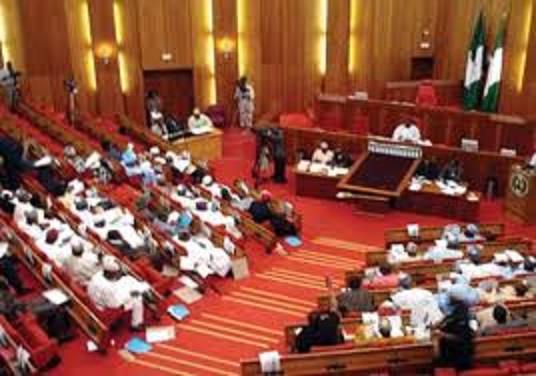Loveth Okoli
Yiaga Africa and other stakeholders have urged amendment of the Companies and Allied Matters Act (CAMA) 2020 to remove some restrictions on NGOs, faith based organisations and institutions.
A roundtable organised by Yiaga brought together stakeholders from Corporate Affairs Commission, Academia and Civil Society Organisations to identify gaps and chart the way forward in the CAMA Act 2020.
Yiaga Africa’s Director of Programmes, Cynthia Mbamalu, said that the organisation began its advocacy against obnoxious legislations in Nigeria starting with stakeholders’ roundtable to review CAMA 2020 for further legislative engagement.
Mbamalu said that Yiaga Africa presented its analysis of act where it identified certain provisions capable of derogating from citizens’ constitutionally guaranteed rights, including how the Act affected non-state actors, especially NGOs, religious and traditional institutions.
She said that the analysis revealed that CAMA 2020 had been hailed as a huge improvement on the 1990 version as it promotes the ease of doing business and seeks to promote accountability in certain sectors hitherto left at the whims and caprices of certain individuals.
She said that the new CAMA repelled the previous one that we had in 1990 under military regime, the passage of the law was an important thing, because it provided better regulations for ease of doing business.
“Together with other associations in Nigeria, we actually observed that there are certain provisions in the existing CAMA which has potential to limit and restrict the operations of CSOs in Nigeria.
“These include faith based organisations and media institutions that are registered.
“For us, what is important is that yes the law has been passed but it is an opportunity to engage, and our goal is to work with other stakeholders to reveal those specific sections that are problematic and make proposal for further amendments.
“This is especially the sections under part F of CAMA, there is already a bill presented at the House of Representatives, proposing amendment to sections 839, of the law, we are hoping there will be another introduction in the senate.
“There is no perfect law, so any law that would potentially affect the exercise of fundamental freedom and human rights in Nigeria, we need to ensure that those laws are reasonably justifiable in democratic society. ‘’
Mbamalu said that the Act affected non-state actors, especially NGOs, religious and traditional institutions and these were not in accordance with the provisions of the 1999 Constitution as amended.
She however, said, “the fact that a law is passed doesn’t mean it cannot be amended and we believe there is always opportunity to review our law in tandem with democratic principles.
“To ensure that the laws protect and guarantee citizens rights and they truly ensure effective planning for the future of our democracy.”
Dr Godwin Malasowe, an academic don from the University of Abuja, who presented Yiaga Africa’s analysis, recommended the unbundling of corporate laws into smaller and perhaps more effective independent components.
Malasowe also urged the National Assembly to consider the unbundling of the CAMA 2020 into smaller legislations for effective corporate management and better corporate practice in Nigeria.
In his reaction, Assistant Director at the Corporate Affairs Commission (CAC), Tolulope Shonike said CAMA 2020 was the largest piece of legislation in Nigeria, so it was not out of place to find complaints about is.
Shonike urged Nigerians to read through CAMA thoroughly and not depend on hearsay as that way they would understand that the law had sufficient safe guards to alienate their fears.
He said that all the CAMA Act was trying to do was to introduce structure in the organisations and not to interfere or restrict them.
“We have noted a lot of these complaints about CAMA, let me state here that before the bill became law, there was extensive engagement with stakeholders, this effort started since 2004, it took between that time and 2020 to become law.’’
He said that registration of organisations and associations was not compulsory since the constitution allowed for freedom of association but however, any registered organisation would be bound by the law.




